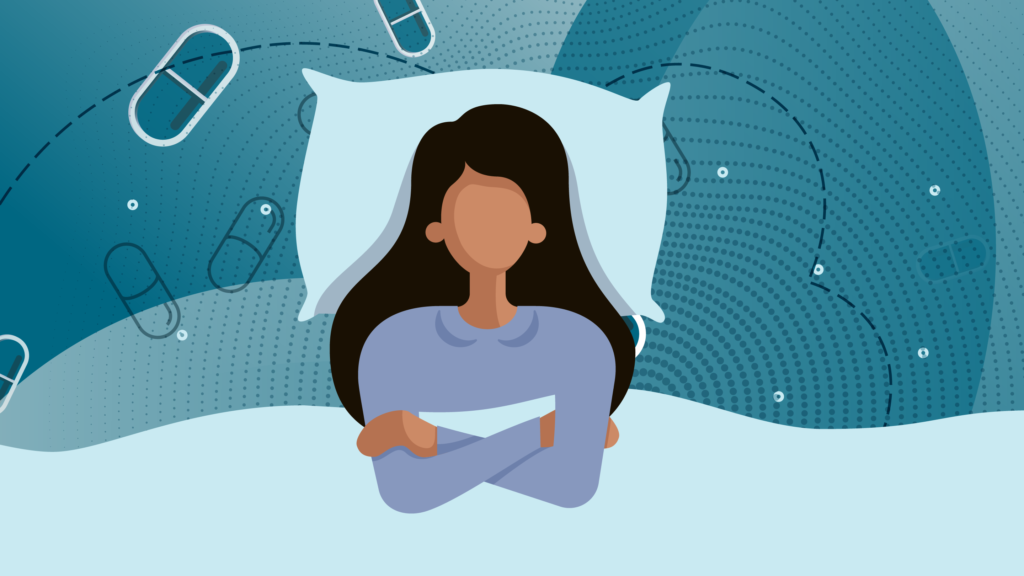Depression is a mental health disorder that can cause a variety of symptoms, including changes in sleep habits. People with depression may find it difficult to fall asleep, wake up frequently during the night, or have trouble getting back to sleep after waking up. In this blog post, we will discuss the relationship between depression and sleep and offer some tips for how to get better sleep when you are struggling with depression.
Contents
Defining Depression
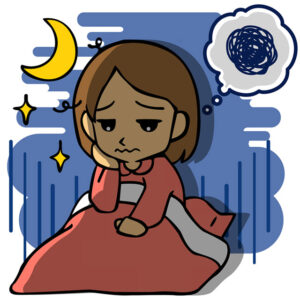
Depression is a mental health disorder that is characterized by persistent feelings of sadness, emptiness, or hopelessness. Depression can also cause physical symptoms, such as fatigue, low energy, and changes in appetite or sleep patterns. People with depression may have difficulty concentrating, making decisions, or remembering things. Depression can range from mild to severe and can last for weeks, months, or even years.
It is important to note that depression is not the same thing as feeling sad or “down” for a short period of time. Depression is a more serious condition that can interfere with your ability to function in daily life. If you think you may be depressed, it is important to talk to your doctor or mental health professional.
Relationship Between Depression and Sleep
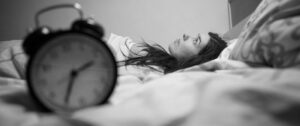
Depression and sleep are closely linked. This is a complex and widely diverse relationship, with a number of different mechanisms at play. Depression can cause sleep problems, and sleep problems can exacerbate or contribute to the development of depression.
There is evidence that insomnia is one of the most common symptoms of depression. In fact, research has found that up to 80% of people with depression also have difficulty sleeping. Insomnia is defined as difficulty falling asleep, staying asleep, or both. People with insomnia may wake up frequently during the night or have trouble getting back to sleep after waking up.
There are a number of different ways in which depression can affect sleep. One mechanism is through changes in circadian rhythms. Circadian rhythms are the body’s natural 24-hour biological clock that regulates many functions, including sleep-wake cycles. Depression can cause changes in the body’s natural circadian rhythms, which can lead to insomnia and other sleep problems.
We all are also aware of our sleep cycle alternating between NREM and REM stages. NREM (non-rapid eye movement) sleep is a deeper stage of sleep that is characterized by slow brain waves. REM (rapid eye movement) sleep is a lighter stage of sleep that is associated with dreams and rapid eye movements. Depression has been found to alter the ratio of time spent in NREM and REM sleep. People with depression tend to spend less time in REM sleep and more time in NREM sleep.
Another way that depression can affect sleep is through changes in levels of neurotransmitters. Neurotransmitters are chemicals that help relay messages between nerve cells in the brain. Depression has been linked with changes in levels of several neurotransmitters, including serotonin and norepinephrine. These changes can disrupt sleep, leading to insomnia and other sleep problems.
Depression can also cause changes in hormones that regulate sleep. One example is cortisol, a stress hormone that helps regulate the body’s fight-or-flight response. When cortisol levels are too high, it can interfere with falling asleep and staying asleep.
Lastly, depression can cause changes in the way the body responds to pain. People with depression may have a heightened sensitivity to pain, which can make it difficult to fall asleep or stay asleep.
Common Sleep Problems Caused By Depression
Sleep disorders can manifest themselves in a variety of ways, and the symptoms can vary from person to person. Some common sleep problems caused by depression include:
Changes in sleep patterns
Due to all the alternations and changes in the brain, people with depression can have a harder time falling and staying asleep. Depression also puts people at a higher risk for developing sleep disorders, such as insomnia.
This behavior can manifest in ways such as mild to moderate depression, which can cause people to have trouble falling asleep or staying asleep. In more severe cases, people with major depressive disorder may experience hallucinations or delusions that make it difficult to fall or stay asleep.
Difficulty falling asleep
People with depression often have trouble falling asleep, staying asleep, or waking up very early in the morning. This can happen due to changes in the body’s natural sleep cycle, as well as changes in brain chemistry and hormone levels.
Depletion in sleep quality
Sleeping isn’t just about how much time you spend in bed. It’s also about the quality of your sleep. And if you’re struggling with depression, you may find that your sleep is more interrupted, less restful, and shorter overall.
This can be due to a number of factors, including changes in your sleep patterns, trouble sleeping through the night, and early morning wakefulness.
Having trouble getting back to sleep after waking up
Sometimes, you may find yourself tossing and turning at night, unable to fall asleep no matter how tired you are. Or you may sleep for hours on end, only to wake up feeling more exhausted than when you went to bed. If this sounds familiar, it could be a sign that your depression is impacting your sleep cycle.
Feeling exhausted during the day
Fatigue and exhaustion are common symptoms of depression. And if you’re not getting enough quality sleep at night, it can make these symptoms worse. You may find yourself struggling to get through the day, feeling drained and unable to focus on even simple tasks.
When you’re tired, it’s normal to feel a little cranky. But if you’re constantly feeling irritable or on edge, it could also be a sign that your sleep deprivation is starting to take a toll on your mental health. Depression can also cause changes in your mood, making you more prone to outbursts of anger or sadness.
Sleeping more than usual
Contradictory to the above-mentioned points, there is also a chance that depression may cause people to sleep more. This is due to the fact that depression can make a person feel emotionally and physically drained. As a result, they may want to spend more time in bed resting and recuperating.
While it’s normal to need more sleep when you’re going through a tough time, it’s important to be aware that too much sleep can also be a symptom of depression. If you find yourself sleeping for 12 hours or more on a regular basis, it’s worth talking to your doctor about whether or not depression could be the cause. This condition can also lead to oversleeping, which can interfere with your daily life and make it difficult to get out of bed in the morning.
All of the above problems can have severe consequences on one’s quality of life. For example, difficulty sleeping can lead to fatigue and make it hard to concentrate or perform daily tasks. It can also worsen mood, increase irritability, and contribute to feelings of sadness and hopelessness.
Sleep Disorders
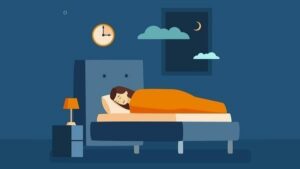
Left untreated, it may also lead to severe sleeping disorders such as:
- Insomnia: Insomnia is a chronic sleep disorder that can have a significant impact on your quality of life. It is characterized by difficulty falling asleep, staying asleep, or both. People with insomnia often wake up feeling tired and unrefreshed. Insomnia can lead to fatigue, irritability, moodiness, and difficulty concentrating. It can also worsen existing mental health conditions such as depression and anxiety.
- Sleep apnea: Sleep apnea is a sleep disorder that occurs when you stop breathing for short periods of time during sleep. It can cause snoring, gasping, or choking sounds. People with sleep apnea often wake up feeling exhausted. Sleep apnea can lead to high blood pressure, heart disease, and stroke.
- Narcolepsy: Narcolepsy is a chronic sleep disorder that causes excessive daytime sleepiness. People with narcolepsy often have difficulty staying awake during the day and may fall asleep unexpectedly. Narcolepsy can also cause hallucinations, sleep paralysis, and disturbed nighttime sleep.
- Restless legs syndrome: Restless legs syndrome is a neurological disorder that causes an irresistible urge to move your legs. It is often described as a crawling, itching, or tingling sensation in the legs. Restless legs syndrome can make it difficult to fall asleep and stay asleep. It can also lead to fatigue and daytime drowsiness.
- Hypersomnia: Hypersomnia is a sleep disorder that is characterized by excessive daytime sleepiness. People with hypersomnia often sleep for long periods of time but still feel tired during the day. Hypersomnia can lead to difficulty concentrating, memory problems, and irritability.
There is a difference between sleep problems and sleeping disorders. However, both can be harmful to your health. If you think you may have a sleep disorder, it’s important to talk to your doctor. They can help you get the treatment you need to get a good night’s sleep.
Tips To Manage
Now that we are aware of the signs and consequences of depression on sleep, we will now learn what to do and manage it. Here are some self-care tips:
Self Care Strategies
There are a variety of things you can try out to help improve your sleep. Some self-care strategies that may help include:
Create a relaxing bedtime routine
It is important to make yourself look forward to sleep by winding down before bed. In order to make it a pleasurable and relaxing experience, establish a bedtime routine. This can involve steps such as making your sleep space comfortable and relaxing by adding some soft lighting, reading a book, or writing in a journal.
Make your bedroom a comfortable haven
Your bedroom should be a haven that promotes relaxation and sleep. To do this, you should make sure your bedroom is dark, quiet, and cool. You should also invest in a comfortable mattress and pillows. If you have pets, you may want to consider keeping them out of the bedroom to create a peaceful environment.
Stick to a regular sleep schedule
It is also important to stick to a regular sleep schedule as much as possible. This means going to bed and waking up at the same time each day, even on weekends. Doing so will help regulate your body’s natural sleep rhythm and make it easier to fall asleep and stay asleep.
Make use of additional tools and resources
There are a variety of tools and resources that can help you get a good night’s sleep. Some examples include:
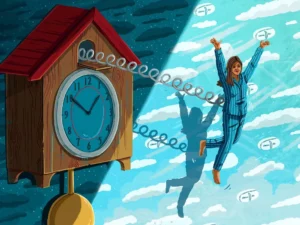
- Sleep apps: There are a number of sleep apps that can help you track your sleep, set alarms, and wind down before bed.
- White noise machines: White noise machines can help create a soothing environment to sleep in by masking outside noise.
- Air purifiers: Air purifiers can help remove allergens and pollutants from the air, which may improve sleep.
- Eye masks: Eye masks can help block out light and promote relaxation.
- Earplugs: Earplugs can also help block out noise and promote relaxation.
Avoid caffeine and alcohol before bed
Caffeine and alcohol are stimulants that can interfere with sleep. Caffeine should be avoided in the afternoon and evening, as it can take several hours to wear off. Alcohol should also be avoided before bed, as it can disrupt your sleep cycle and cause you to wake up in the middle of the night.
Limit screen exposure before bed
The blue light emitted by screens can interfere with your body’s natural sleep rhythm. To avoid this, limit your screen time in the evening and avoid using devices within an hour of bedtime. You can also try using blue light blocking glasses or installing a blue light filter on your devices.
Indulge in physical activity
Physical activity is a great way to improve your sleep. Exercise can help you fall asleep faster and stay asleep longer. Just be sure to avoid working out too close to bedtime, as it can make it harder to fall asleep. You can do light to moderate exercise for 30 minutes at least four to five times a week. Some of the most popular and easy types of exercises to do are walking, swimming, running, and yoga.
Enrich your diet
What we eat plays an important role in how we sleep. To get the most out of your slumber, be sure to eat a balanced diet that includes plenty of fruits, vegetables, whole grains, and lean protein. You should also limit your intake of sugary foods, caffeine, and alcohol.
Take a hot shower
Hot showers have proven to be helpful in improving sleep. The warmth of the water can help relax your muscles and ease tension. Hot showers can also help improve circulation and relieve pain. Just be sure to avoid showering too close to bedtime, as it can make it harder to fall asleep.
Manage stress
Stress is one of the biggest enemies of sleep. To manage stress, you can try out various types of tricks and strategies such as deep breathing, meditation, and aromatherapy. You can also try to avoid stressful situations and people who tend to trigger your stress.
Get enough daylight
Exposure to natural light during the day can help improve your sleep at night. Make sure to get plenty of daylight by spending time outside or near a window during the daytime hours.
Practice self-care
Self-care is one of the most important things you can do to improve your sleep. Be sure to make time for things that make you happy and relaxed. This can include activities such as spending time with friends and family, listening to music, journaling, reading, or getting a massage.
Adopt relaxation techniques
Relaxation techniques are a great way to ease stress and anxiety. They work by helping you to focus on the present moment and letting go of intrusive thoughts. Some popular relaxation techniques include progressive muscle relaxation, guided imagery, and yoga.
These are some of the most effective and popular tricks and tips to improve sleep when you’re struggling with depression. Just remember to be patient and consistent with your efforts, as it may take some time to see results. If you find that your sleep problems persist, be sure to talk to your doctor for more help.
Professional Help
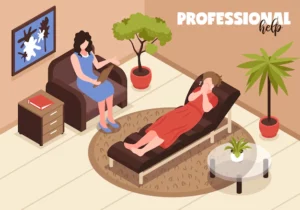
Sometimes your symptoms and condition may be too severe and complicated for home treatment. If this is the case, please do not hesitate to seek professional help from a mental health specialist. Depression is a serious condition that should not be taken lightly. Seeking support from a mental health professional can be incredibly helpful in managing your condition and improving your sleep.
There are many different types of professionals who can help treat depression, such as psychiatrists, psychologists, therapists, and counselors. Some of the most effective and evidence-based treatment methods for depression and sleep problems include:
Therapy
Therapy is the process of meeting with a mental health professional to discuss your thoughts, feelings, and experiences. It can be incredibly helpful in managing depression and sleep problems. There are many different types of therapy that can be effective, such as:
- Cognitive-behavioral therapy
Cognitive-behavioral therapy, or CBT, is a type of therapy that focuses on helping you to change negative thoughts and behaviors.
Psychodynamic therapy is a type of therapy that focuses on exploring the unconscious mind.
Expressive therapy is a type of therapy that focuses on using art, music, or writing to express yourself.
Medication
Medication is a wise and common treatment option for depression and sleep problems. There are many different types of medication that can be effective, such as:
- Antidepressants
Antidepressants are a type of medication that can help to improve mood and sleep.
- Anti-anxiety medication
Anti-anxiety medication is a type of medication that can help to reduce anxiety and improve sleep.
- Stimulants
Stimulants are a type of medication that can help to increase energy and alertness.
Sleeping pills are a type of medication that can help to promote sleep.
It is important to note that medications often have side effects and should be used with caution. Be sure to talk to your doctor about the risks and benefits of taking medication for depression and sleep problems.
Alternative Treatments
Alternatively, there are other types of professional treatments that can also ease depression and improve sleep. These include:
- Light therapy
Light therapy is a type of treatment that uses exposure to artificial light to improve mood and sleep.
- Electroconvulsive therapy
Electroconvulsive therapy, or ECT, is a type of treatment that uses electrical stimulation in the brain to improve mood and sleep.
- Transcranial magnetic stimulation
Transcranial magnetic stimulation, or TMS, is a type of treatment that uses magnetic fields to stimulate the brain to improve mood and sleep.
- Vagus nerve stimulation
Vagus nerve stimulation, or VNS, is a type of treatment that uses electrical impulses to stimulate the vagus nerve to improve mood and sleep.
Acupuncture is a type of treatment that uses needles to stimulate the body to improve mood and sleep.
- Aromatherapy
Aromatherapy is a type of treatment that uses essential oils to improve mood and sleep.
These are just some of the many professional treatments that can help to ease depression and improve sleep. Be sure to talk to your doctor about which treatment may be right for you.
Conclusion
Depression and sleep problems can be difficult to manage. Both the conditions can co-exist and worsen each other, the effects of which can be severe and harmful. Thankfully, there are many effective and evidence-based treatment methods available. While there are many things that can interfere with a good night’s sleep, there are also a number of things you can do to improve your sleep. Taking steps to improve your sleep can also help to ease depression. Be sure to talk to your doctor about the best treatment options for you.
For more information, please contact MantraCare. Depression is a mental illness characterized by persistent feelings of sadness, hopelessness, and loss of interest in daily activities. If you have any queries regarding Online Depression Counseling experienced therapists at MantraCare can help: Book a trial Depression Therapy session
